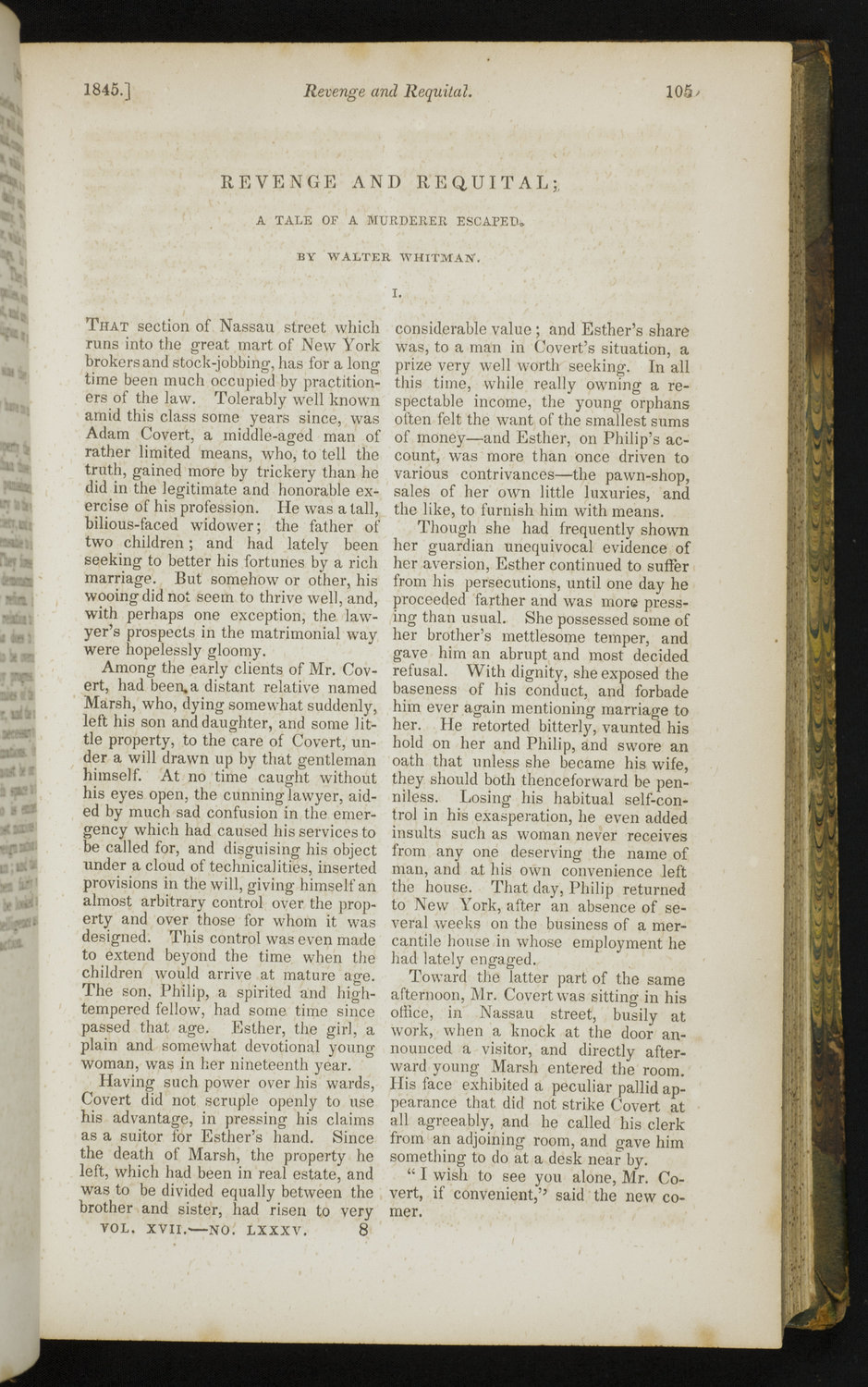"Revenge and Requital," 1845

Walter Whitman. “Revenge and Requital: A Tale of a Murderer Escaped.” The United States Magazine and Democratic Review, 17 no. 85 (July and August 1845): 105-111.
An example of Whitman's early short fiction. "Revenge and Requital" luridly evokes the fate of Philip Marsh, a young man who kills his abusive guardian and whose guilt driveshim to become a “messenger of health” during a cholera epidemic, saving, precisely, the children made fatherless by his crime. At the end, Marsh himself succumbs to the disease. The story ends with a plea against capital punishment. Whitman’s story is followed by a poem written by one T. H. Howard from New Orleans: “The Venus Anadyomene”: “Fresh from the wave, with flowing limbs/ All animate with joy, and eyes / Wherein celestial rapture swims,/ and on her lips a music lies, She rises, / Panting with feeling….” (p. 111). The authenticity of Whitman’s voice is unmistakable. In November 1845, the United States Magazine published Whitman’s “A Dialogue,” another statement against the death penalty: “the very facts which render murder a frightful crime, render hanging a frightful punishment.”
